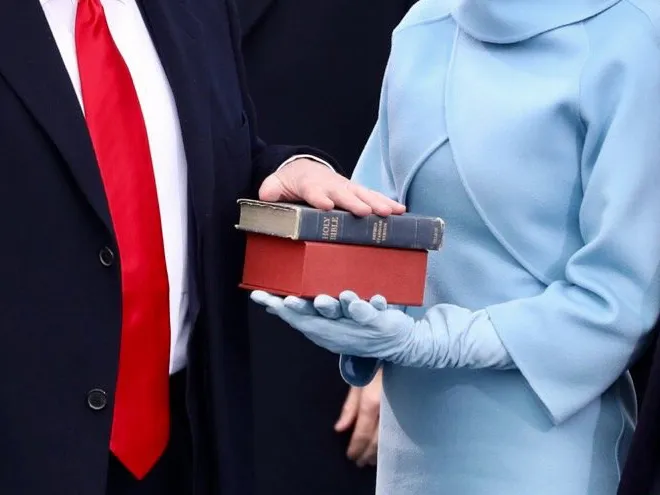Upon his or her entrance into office, the president of the United States must swear to “preserve, protect, and defend the Constitution.” Given that preservation of this document is entrusted to the president, it is critical for Americans to think seriously about what this should mean in light of the democratic character of our government. On this question, I submit that a critical element of the president’s responsibilities is the duty to pay special attention to the poor.
I say this because the Constitution itself was created to promote the interests and welfare of Americans, yet it is a truism that not all people here are equally able to live lives of peace and prosperity. For similar reasons in his day, the prophet Isaiah exhorted the Israelites to do the following:
“Learn to do good. Seek justice. Help the oppressed. Defend the cause of orphans. Fight for the rights of widows.”
The Hebrew Bible authors are unambiguous in their argument that special attention to the weakest members of a society is critical for the justice and integrity of the political system. Isaiah, Amos, and Elijah all decried greed and the continual deprivation of the poor, both for its moral unacceptability and the insecurity it wrought in the Israelite kingdom. When the political leadership and common citizenry showed indifference to the suffering of the marginalized, they invited their own destruction by God’s wrath.
In Christianity, care for the poor was historically associated with the idea of a “katechon,” a word used by St. Paul to describe a person or thing that restrains the Antichrist, who will signal the end of the world. It is important to note that questions concerning the nature and identity of the Antichrist are frustratingly mysterious if not altogether inscrutable. However, the danger of certain charismatic individuals and movements are clear and highly relevant to American democracy. Both religious and secular people can recognize the wisdom of ancient texts that warn against this threat.

Indeed, political philosophers from the psalmists of the Hebrew Bible to John Rawls have recognized the danger of unchecked power in the hands of charismatic political leaders. Similarly, St. John the Apostle states that there are many Antichrists (1 John 2:18), invidious personalities devoted to their private success, glory, and power—to the detriment of the common good.
In the current political landscape, there are perhaps no issues where the poor are more endangered than pollution, environmental insecurity, and ecological catastrophe. In his encyclical “Laudato Si,” Pope Francis writes:
“Our world has a grave social debt towards the poor who lack access to drinking water, because they are denied the right to a life consistent with their inalienable dignity.”
The American president is uniquely poised to act as a katechon who can promote the status of the poor by protecting the natural environment against private greed and rapaciousness. This is fully harmonious with his or her Constitutional oath of office, and is pursuant to the greatest exhortations of justice found in the most eminent Biblical prophets.
The president’s duty to ensure safe food, water, and medicine for the citizens of the United States is critical, but the human ecology of the country is also of deep importance. Unemployment, joblessness, and the increasing sense of desperation felt by millions of Americans should also be a chief concern. A society defined by rampant injustice against the poor will incur divine wrath, as is evidenced by the immortal words of the prophet Jeremiah:
“What sorrow awaits [the one who builds his palace with forced labor. He builds injustice into its walls, for he makes his neighbors work for nothing. He does not pay them for their labor. He says, ‘I will build myself a great palace with spacious upper rooms.’ So he makes large windows in it, panels it with cedar and decorates it in red.”
(Jeremiah 22:13)
Alexander Walton is an honors graduate of Morehouse College, where he earned a Bachelor of Arts degree in Philosophy. He is currently a Master of Arts candidate at Yale Divinity School and the Yale Institute of Sacred Music.






